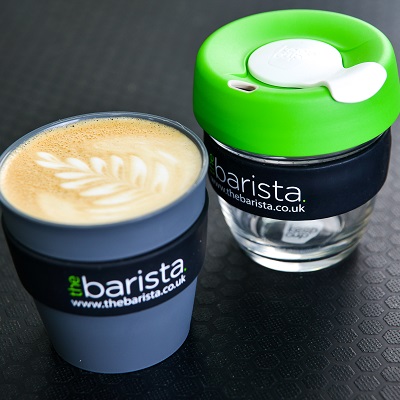The journey to more sustainable events
What can be done?
As businesses – and people – we all have a responsibility to limit our impact on the environment. It’s not always easy, but it’s an ongoing process that requires the co-operation of our whole industry.
Many businesses acknowledge they need to do more but don’t necessarily know where to start. In our experience, the first step is to think realistically about what’s achievable to you.
Can you switch to a renewable energy supplier? Are there materials you regularly order that have biodegradable alternatives? Is there a way to encourage your employees to co-travel?
Implementing these kinds of changes over an extended period of time is a maintainable approach as it enables you to measure the impact on your business. The next step is to research and explore some of the practices that can be put into action during your event planning.
More often than not, there are sustainable options within arm’s reach. These can be implemented right away. Take a look at these seven ideas to see what we mean:
1. Reusable structures
It’s the norm within many industries to create new stand designs and stage structures for every single event. But, is this really necessary? Having reusable, modular stand assets is one easy way to instantly reduce the carbon footprint of every event you organise or attend.
Investing in an adaptable stand, backdrop or stage structure means that you’re prepared for every event. It also saves you time and money through the design and production of brand new displays.

2. Creative freebies
Think outside of the box and ditch the giveaways pulled straight from the box. Disposable branded giveaways – usually plastic – are a huge source of waste generated by the events industry. There are plenty of sustainable and creative ways to add a personal touch to your event.
Why not offer something non-material like an experience? This could be something as small as a delicious drink, or more adventurous like an interactive game or prize draw for a skydive. Not only are these ideas less wasteful than branded pens and keyrings, but they’re also more memorable.
3. Go paperless
From banking to newsprint, the world has moved away from its reliance on paper massively and events should be no exception. Although brochures and printed collateral are valuable in some instances, don’t pass up the opportunity to go electronic with your literature where possible.
Providing attendees with a link to a Google doc. or Dropbox folder not only saves on print costs, but it’s easier to store for the vast majority. It’s also less likely to get dumped on the train home compared with a huge bag of heavy brochures.
4. Research your materials
Wherever possible, research sustainable options. Switching to materials like bio-degradable cups, recycled tote bags or low carbon displays might seem like small changes, but they all add up. If you think about the scale of materials you get through each year, these changes are significant.
You might be surprised by how many sustainable options are readily available. For example, we use Vegware compostable coffee cups and reusable ‘keep cups’ for our mobile coffee service. Sourcing sustainable materials might cost more initially, but over time your business will adapt. It may even turn out to be a pull-factor for environmentally-conscious new customers.

5. Team up with event organisers and suppliers
We mentioned that sustainability is an industry-wide concern. And, in our experience, many event organisers, suppliers and attendees are keen to work together on ways to reduce the overall carbon footprint of an event. Always raise the question during the planning stages of an event as you might strike on previously un-thought-of ways to make the event more eco-friendly for everyone.
6. Waste not want not
It’s a simple step, but a valuable one. If it’s not already part of your process, add a checkbox to your event plan to find out about the waste policy of the venue you’re visiting. Then you can plan effectively and make sure your team are clued up on the recycling procedures.
7. Travel smart
Co-travelling, both within your organisation and with external suppliers, is an easy way to keep fuel usage to a minimum. And if you’re working alongside other suppliers, why not see if you can coincide deliveries and share vans to reduce the number of vehicles travelling to and from the venue? This is something we’ve done with stand builders and it’s always been hugely effective.
We hope you’ve found these ideas useful. It can be that organisations feel reluctant to make changes because they think it’s going to cost them money. But, in reality, many sustainable choices are about limiting waste and actually save you money in the long run.
The important thing to remember is that this is a marathon and not a sprint, but there are always new things we can be doing as an industry to improve. Do you have any tips that we haven’t mentioned? We’d love to hear what they are!
We’re on Facebook, LinkedIn and Instagram, or you can get in touch with us at hello@thebarista.co.uk or 0845 257 5900.
